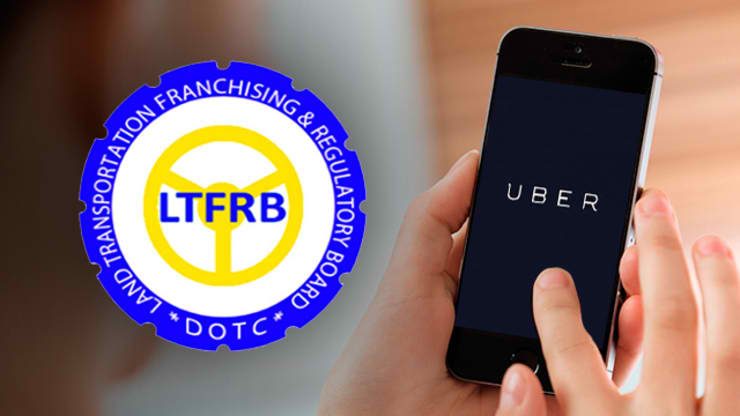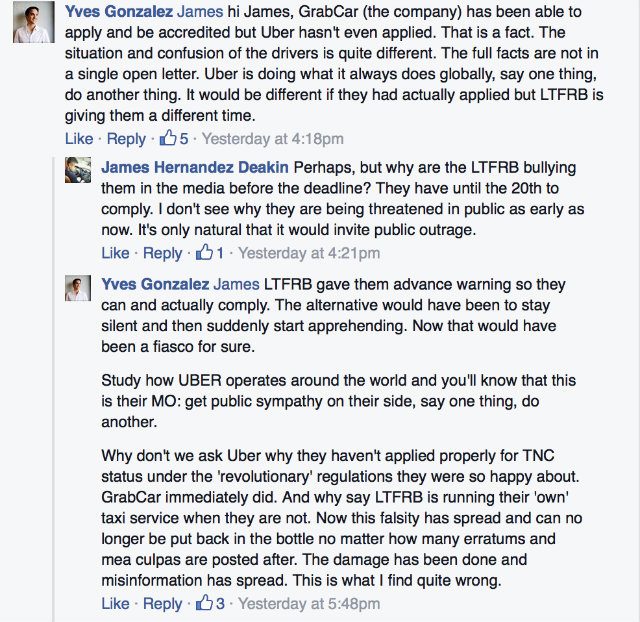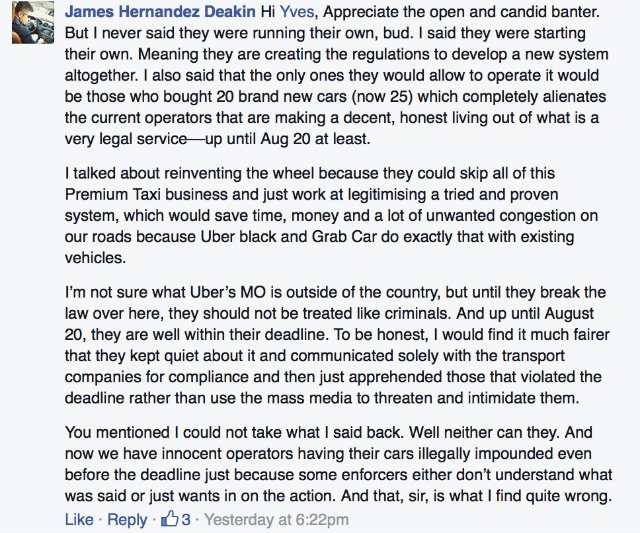SUMMARY
This is AI generated summarization, which may have errors. For context, always refer to the full article.

MANILA, Philippines — In the past week, arguments over ride-sharing service providers like Uber and Premium Taxi have been flooding social media. Such discussions highlighted some of the most pressing #CommuterProblems – and it also created confusion among Filipino netizens.
On Thursday, August 13, automotive journalist James Deakin alleged the Land Transportation Franchising and Regulatory Board (LTFRB) and the Department of Transportation and Communications (DOTC) of being “so unreasonably hard on Uber.”
This comes after the Philippine government’s call for a nationwide clampdown on unregistered Uber and GrabCar vehicles, after licensed taxi operators protested unfair competition.
“They are starting their own service called premium taxi, which is just another racket and another inept way of reinventing the wheel! This is appalling,” Deakin said in his original Facebook post. His post quickly went viral, scoring over 3,000 likes and 6,000 shares as of Saturday, August 15.
LTFRB Chairman Winston Ginez responded also through Facebook, clarifying that “the allegation that Premium Taxi was created to compete with Uber and GrabCar is without basis in fact and in law.” Ginez also stressed that the DOTC and LTFRB are not putting Uber and GrabCar out of business, but merely asking the two to apply for franchise.
Deakin then wrote an open letter to the LTFRB and DOTC, saying he is not against the Premium Taxi service but only concerned that it may “replace” or “compete unevenly” with Uber. He also edited his original Facebook post:
“In the spirit of fairness to the LTFRB, I have edited (at their request) the term ‘starting their own service’ to ‘starting a new service’ so that it is clear to all that it does not belong to them as operators, but solely as regulators. Hope this clears things up. The rest of the rant is a matter of opinion.”
Misinformation?
The debate, however, is yet to rest. On Saturday, lawyer Yves Gonzalez shared on Facebook screengrabs of his online discussion with Deakin regarding Uber and LTFRB.
Gonzalez, a former traffic official of the Metro Manila Development Authority (MMDA), said that as an Uber customer, he wants the latter to comply with the government’s requirements.
“But the disinformation that has spread recently regarding Premium Taxi has been grossly unfair to the government regulators, taking into consideration how accommodating they have been to Uber and the like,” Gonzalez added. “The ball is in Uber’s court now to comply with the ‘historic’ progressive regulations they hailed back in May 2015.”
Gonzalez emphasized the fact that while GrabCar has been able to follow LTFRB’s accreditation procedures, Uber has not done so.

Meanwhile, Deakin pointed out that the government should should not treat Uber operators like “criminals,” especially since they still have August 21 to meet LTFRB’s regulations.

The LTFRB itself also clarified that the Premium Taxi category is not new and is not owned by the board. Here is a timeline of events:
- October 22, 2014 – LTFRB apprehended partner cars of ride-sharing service Uber
- October 30, 2014 – LTFRB stopped apprehending Uber units
- January 2015 – LTFRB mulls new transport category for app-based ride-sharing service providers, Businessworld reported
- March 2015 – LTFRB mulls new transport category called Premium Taxi, Businessworld reported
- May 2015 – DOTC, LTFRB formally introduced 4 new transport categories
- May 2015 – LTFRB laid out rules for new transport categories
- June 2015 – Philippine taxi industry protests new rules
- July 2015 – GrabCar became the Philippines’ first transport network company
- August 2015 – LTFRB announced scheduled clampdown on unregistered Uber, GrabCar units
- August 21, 2015 – Operators of Uber, and competitor GrabCar will be apprehended if they are unable to secure the necessary franchise or provisional authority from LTFRB
Add a comment
How does this make you feel?
There are no comments yet. Add your comment to start the conversation.